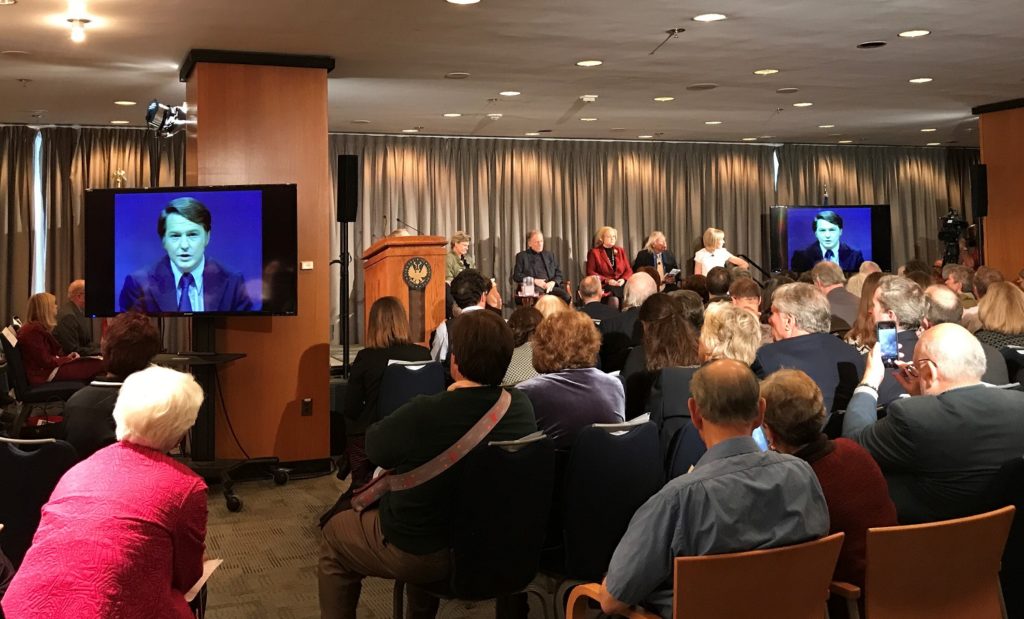Post written by the ARSC Copyright Committee. See also ARSC Position on the CLASSICS Act, published March 12.
The Music Modernization Act, which includes the CLASSICS Act, is about to be voted on in the U.S. House and Senate. CLASSICS should either be amended or removed to avoid compounding one of the worst mistakes ever made in federal copyright law.
In the 1970s, when it finally brought sound recordings under federal copyright protection, Congress made what is now generally considered a “mistake.”[i] Fearing that bringing recordings made before 1972 (the effective date of the new law) under federal law would somehow open them to piracy, it left those older recordings under state law. The assumption was incorrect, and resulted in a split system in which millions of older recordings remained under a confusing patchwork of state laws, hobbling the libraries and archives charged with preserving them and eliminating any real possibility of a public domain for very old and historic recordings. Recordings are today the only type of Intellectual Property saddled with these restrictions.
For the last ten years, as our fragile recorded legacy crumbles and is largely hidden from sight by copyright restrictions, many have urged Congress to fix this problem. Congress commissioned two studies of the issue, requesting a recommendation from the U.S. Copyright Office and a comprehensive audio preservation plan from the Library of Congress.[ii] Both of these solicited input from the public and private sectors, and from experts, and both strongly recommended bringing pre-1972 recordings fully under federal law.
Then a funny thing happened on the way to legislation.
Federal copyright is a balanced regime with benefits for everyone, rights holders, the public, and the libraries and archives that preserve our heritage and make it available to students. The large record companies (initially opposed to federalization) decided that they liked the benefits they would get, specifically streaming royalties, but not benefits for others. So they fashioned a law that essentially got them what they wanted, while giving nothing to others.
How to sell such a law? Dress it up with some famous names, claim that it benefits all creative artists (when in fact most revenue goes to the labels), and package it with a more popular piece of legislation, the Music Modernization Act (MMA). Winners will be the labels (especially the largest, foreign-owned, labels) and their million-dollar lobbyists. Losers are libraries, archives, and the public they serve. And they are not only losers today. It is generally agreed that given Congress’s difficulty modifying copyright, once this passes there will not be another opportunity to right this wrong for decades–probably for half a century, which is how long the current state-based regime is scheduled to last.
There is much that is worthwhile in the rest of the MMA. CLASSICS could conceivably be fixed, or at least made less harmful, by adding language to preempt state law and create a true public domain for recordings more than 95 years old, and applying all the exceptions granted to libraries and archives for preservation purposes. Or it could just be removed.
Once they have grabbed the piece they want, there will be no incentive for the labels to compromise with the public interest. Why should they?
Congress should defeat this land-grab, which ignores the recommendations of its own experts as well as the public interest in favor of the demands of one interested party. It is well documented that private rights holders have no financial interest in preserving or making available significant numbers of historical recordings.[iii] That’s the job of libraries and archives. Passage of the CLASSICS act will aid and abet both the gradual destruction of our audio heritage, and its availability to and appreciation by generations of Americans.
Will CLASSICS do actual harm? You bet it will. We will almost certainly be paying the price for this ill-conceived legislative add-on for many years to come.
Association for Recorded Sound Collections Copyright and Fair Use Committee, Tim Brooks, Chair – info@recordingcopyright.org
Notes:
[i] This is the term used in the discussion of legislative history in the U.S. Copyright Office report “Federal Copyright Protection for Pre-1972 Sound Recordings,” December 2011, 15. Hereafter “USCO 2011 Report.” Note that since Congress did not clearly indicate why it was excluding pre-1972 recordings two possible reasons are given, but based on the evidence “simple mistake” is cited as most likely.
[ii] USCO 2011 Report and National Recording Preservation Board, “The Library of Congress National Recording Preservation Plan,” December 2012, 42.
[iii] Tim Brooks, “Survey of Reissues of U.S. Recordings” (2005), commissioned by the Council on Library and Information Resources and the Library of Congress, documents that only 6% of historically important recordings made before 1940 are available from the rights holders; 2% of those made before 1920 are available.

